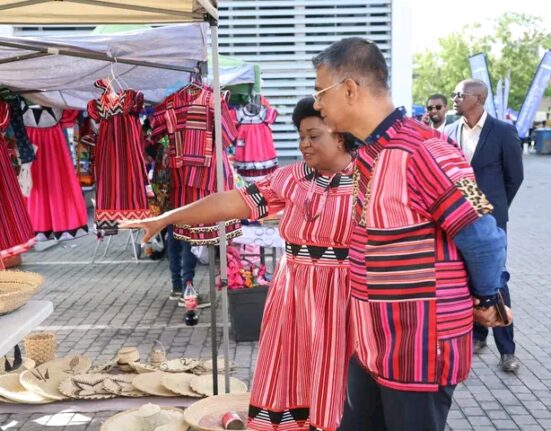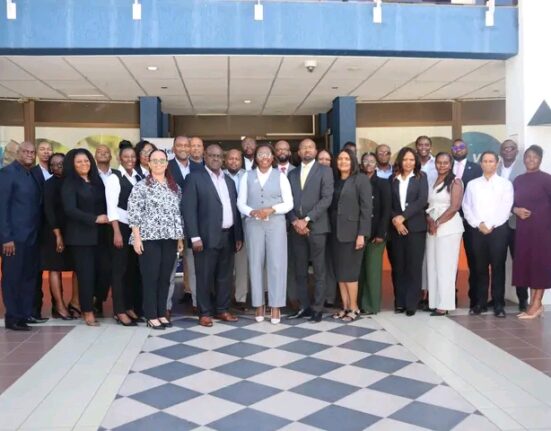As the world increasingly focuses on environmental conservation and ethical business practices, sustainability has become a top priority for companies globally. In Namibia, small and medium enterprises (SMEs) are adopting sustainable business practices to not only contribute to the country’s long-term environmental goals but also boost profitability and competitiveness. With a growing emphasis on reducing carbon footprints, promoting resource efficiency, and enhancing social responsibility, sustainable practices are transforming how businesses operate in Namibia. This article delves into the importance of sustainability in Namibia’s SMEs and highlights key sustainable business practices being implemented across various sectors.
Why Sustainability Matters for SMEs in Namibia
Namibia, like many countries, faces environmental challenges such as water scarcity, land degradation, and climate change impacts. For SMEs in Namibia, adopting sustainable business practices is not just an ethical decision, but a strategic one. It enhances brand reputation, improves operational efficiency, and helps in meeting local and international regulatory standards. Additionally, sustainable practices can lead to cost savings through energy conservation, waste reduction, and better resource management.
Furthermore, sustainability in business promotes innovation, which is vital for long-term growth in an ever-evolving market. By adopting green technologies, ethical sourcing, and environmentally friendly operations, SMEs can tap into a growing consumer base that increasingly values sustainability. In Namibia, SMEs represent a significant portion of the economy, making their role in achieving national and global sustainability goals critical.
1. Adopting Energy-Efficient Practices
Energy consumption is one of the largest operational costs for businesses, and SMEs in Namibia are increasingly recognizing the value of energy efficiency. By adopting renewable energy sources, such as solar power, and optimizing energy usage through energy-efficient lighting and equipment, businesses can significantly reduce their environmental impact while lowering their utility bills.
Namibia, blessed with abundant sunshine, is particularly well-suited for solar energy solutions. Many SMEs, especially in sectors like hospitality, manufacturing, and agriculture, are transitioning to solar energy as a sustainable alternative to traditional power sources. Not only does this help businesses reduce their carbon footprints, but it also enables them to become more energy-independent, which is a key consideration in a country where energy shortages can be an issue.
Energy-Efficient Practices Employed by SMEs:
- Installing solar panels to power operations.
- Using LED lighting and energy-efficient appliances.
- Conducting energy audits to identify areas for improvement.
- Encouraging employees to adopt energy-saving habits (e.g., turning off unused equipment).
Why It’s Effective for SEO: SEO strategies targeting “solar energy solutions for businesses in Namibia” or “energy-efficient SMEs in Namibia” can attract businesses seeking practical solutions to reduce energy costs while contributing to environmental sustainability.
2. Sustainable Sourcing and Procurement
One of the most impactful sustainable practices in business is responsible sourcing and procurement. In Namibia, SMEs are increasingly making efforts to source raw materials and products locally to reduce their carbon footprints and support the local economy. This practice also helps SMEs build stronger relationships with local suppliers, ensuring more control over the supply chain.
For businesses in industries like agriculture, manufacturing, and retail, sustainable sourcing can involve selecting eco-friendly materials, reducing packaging waste, and supporting fair trade practices. Namibian SMEs are taking steps to ensure that their supply chains are aligned with sustainability principles by sourcing products and materials that are ethically produced, certified for sustainability, or produced with minimal environmental impact.
Sustainable Sourcing Practices:
- Procuring locally grown or manufactured products to minimize transportation emissions.
- Choosing eco-friendly raw materials, such as recycled or biodegradable products.
- Partnering with suppliers that have sustainable certifications, such as Fair Trade or Organic labels.
Why It’s Effective for SEO: By targeting keywords like “sustainable sourcing in Namibia,” SMEs can rank well in search results related to responsible procurement and ethical supply chains, attracting businesses that prioritize sustainability.
3. Waste Reduction and Recycling
Waste management is a critical issue for businesses in Namibia, particularly in urban areas where waste disposal can be a challenge. Many SMEs are adopting waste reduction strategies to minimize their environmental impact. These practices include reducing waste generation, recycling materials, and repurposing waste for other uses.
Businesses in Namibia are turning to innovative ways to handle waste. For example, some agricultural SMEs are implementing composting programs for organic waste, while others in the manufacturing sector are recycling scrap materials to create new products. SMEs in hospitality and retail are also adopting packaging reduction initiatives, switching to biodegradable or reusable materials to reduce single-use plastic waste.
Waste Reduction Strategies:
- Implementing recycling programs within the business operations.
- Reducing packaging and opting for reusable containers.
- Repurposing waste materials, such as using organic waste for composting.
- Encouraging customers to reduce waste, such as offering discounts for bringing reusable bags.
Why It’s Effective for SEO: Content focusing on “waste reduction strategies for businesses in Namibia” or “recycling initiatives in Namibia’s SMEs” can drive traffic from businesses looking to adopt zero-waste practices or improve their sustainability efforts.
4. Water Conservation
Water scarcity is a pressing issue in Namibia, with much of the country being arid or semi-arid. For SMEs operating in water-intensive industries such as agriculture, manufacturing, and hospitality, water conservation is critical to ensuring long-term business sustainability. Many Namibian SMEs are embracing water-efficient technologies and practices to reduce water consumption and manage resources more effectively.
For example, in agriculture, SMEs are adopting drip irrigation systems that deliver water directly to plant roots, reducing waste and conserving water. Businesses in the hospitality sector are implementing water-saving measures, such as low-flow faucets, water-efficient appliances, and reusing water where possible. Additionally, rainwater harvesting is being used in both urban and rural areas to supplement water supply.
Water Conservation Practices:
- Implementing rainwater harvesting systems to supplement water use.
- Using water-efficient technologies in agricultural and manufacturing processes.
- Installing water-saving devices in facilities (e.g., faucets, toilets).
- Educating staff and customers on water conservation practices.
Why It’s Effective for SEO: Keywords like “water conservation for SMEs in Namibia” or “drip irrigation solutions for Namibian farmers” can attract businesses seeking to optimize their water usage and reduce costs associated with water consumption.
5. Corporate Social Responsibility (CSR) and Community Engagement
Sustainability in business is not just about environmental practices; it also involves social responsibility. Many SMEs in Namibia are adopting corporate social responsibility (CSR) initiatives that focus on benefiting local communities and promoting social welfare. These businesses are committed to contributing positively to the community by supporting local charities, offering education and training programs, and engaging in health and wellness initiatives.
Incorporating CSR into business models helps SMEs build trust with consumers, employees, and other stakeholders. It also ensures that businesses are not only profit-driven but are also contributing to Namibia’s overall development.
CSR and Community Engagement Practices:
- Supporting local communities through donations, sponsorships, and volunteer work.
- Providing skills training and employment opportunities for marginalized groups.
- Promoting sustainable livelihoods in local communities, especially in rural areas.
- Partnering with NGOs and government agencies on social initiatives.
Why It’s Effective for SEO: Content around CSR practices in Namibia’s SMEs, such as “corporate social responsibility in Namibia” or “community engagement by Namibian SMEs,” can help businesses stand out as responsible corporate citizens while appealing to customers who prioritize social good.
Sustainable business practices are no longer a luxury but a necessity for small and medium enterprises (SMEs) in Namibia. By embracing sustainability across various aspects of their operations—from energy efficiency and water conservation to waste reduction and ethical sourcing—Namibian SMEs are positioning themselves as leaders in responsible business. These practices not only reduce environmental impact but also offer economic benefits through cost savings, improved efficiency, and stronger relationships with customers and local communities.
As global demand for sustainable products and services grows, SMEs in Namibia are taking critical steps toward building a green and ethical business landscape. By incorporating sustainable business practices into their strategies, Namibian SMEs are not only contributing to the environment but also ensuring their long-term viability in an increasingly eco-conscious world.













